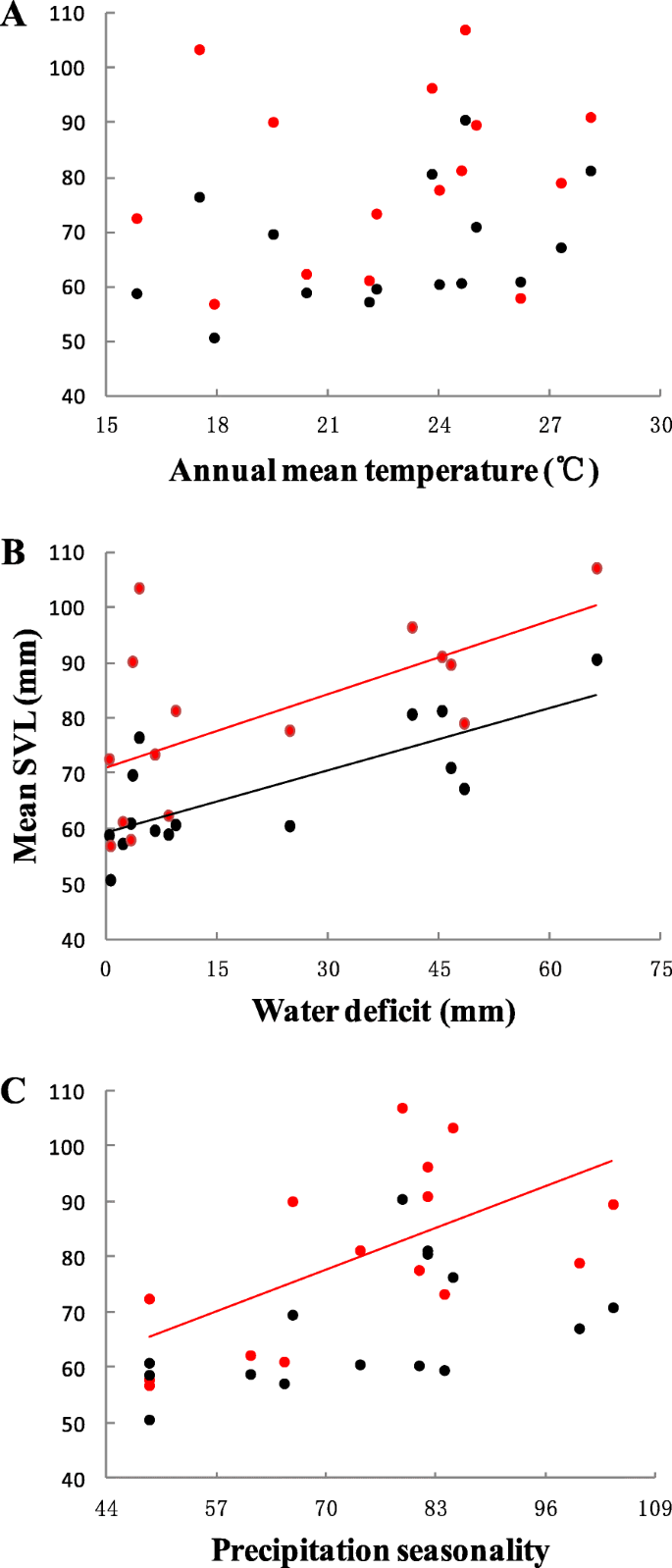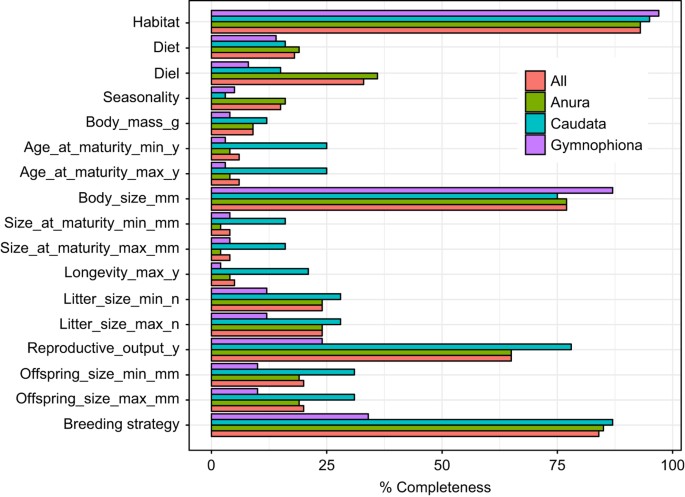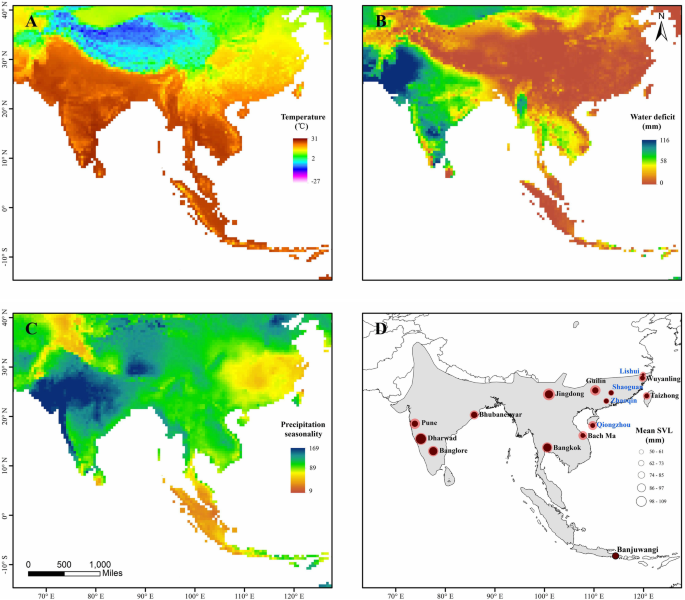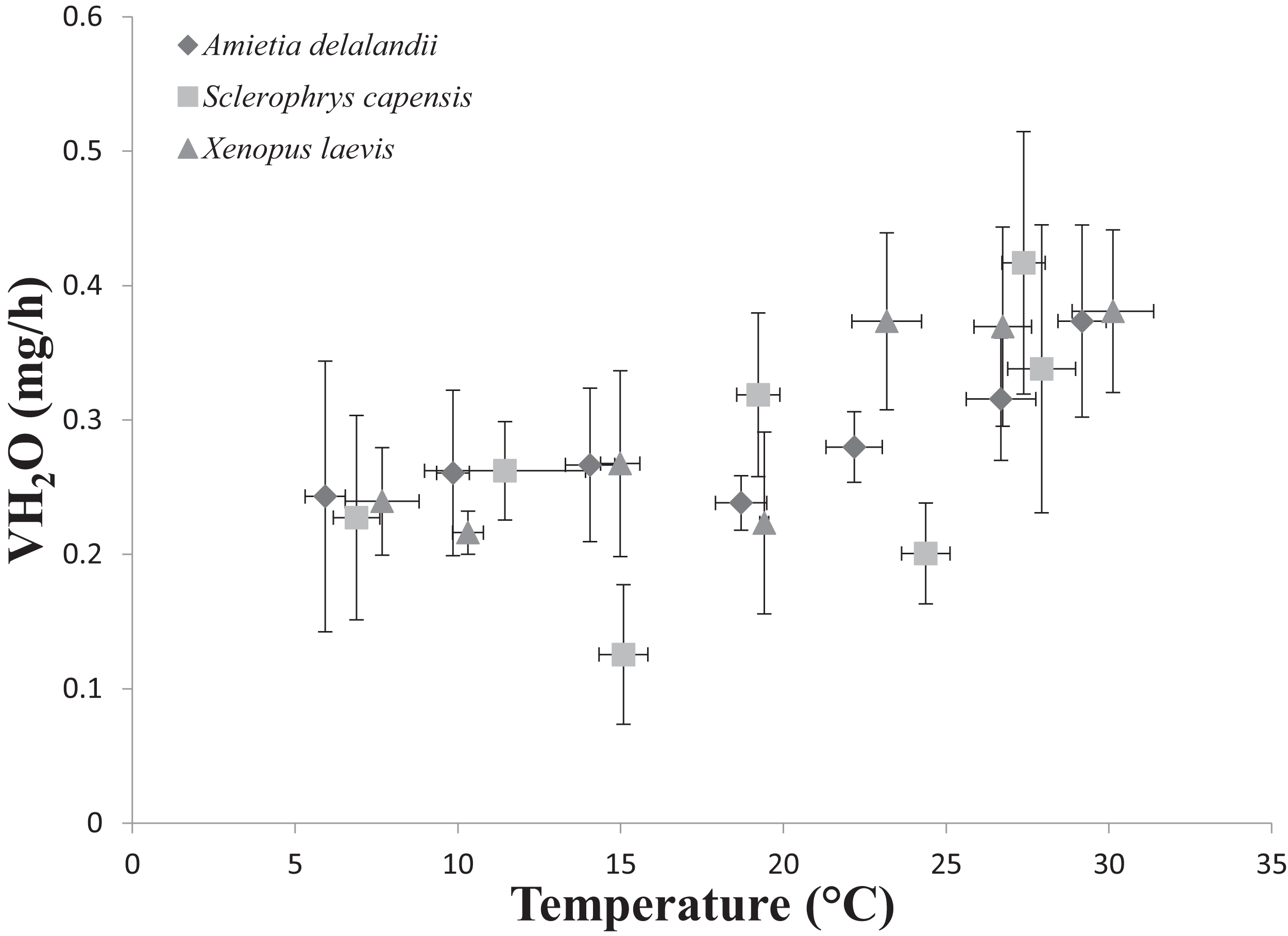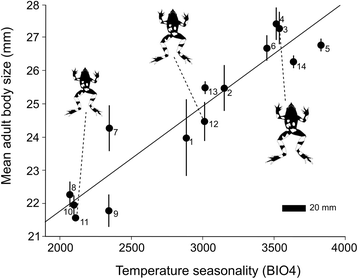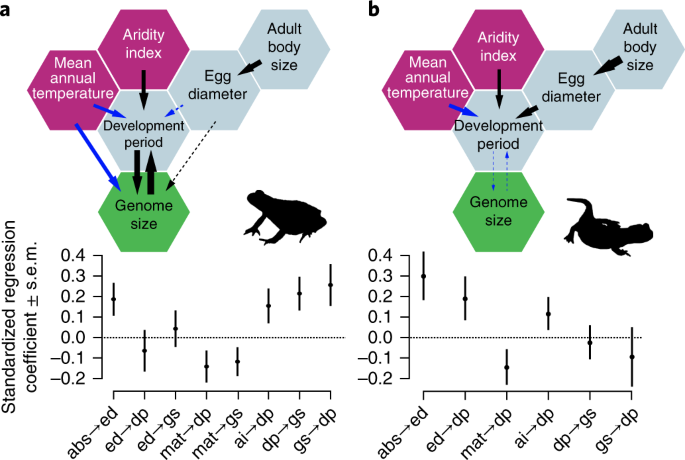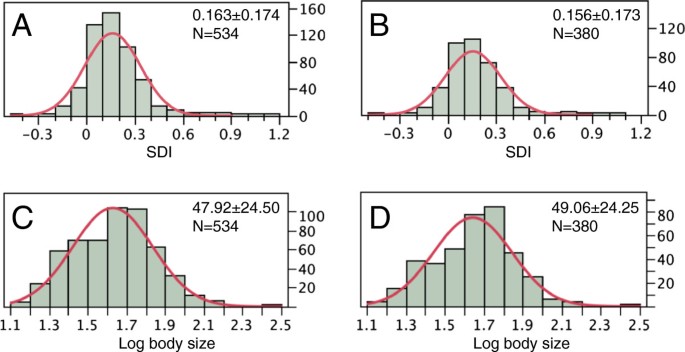This involved coducting anuran morphometric measurements and. Snout vent length svl was used to represent anuran body size.

Cerebellum Size Is Positively Correlated With Geographic
Body measurement of anuran. Branches within the phylogeny are coloured based on estimated shifts in body size evolution. Two previous studies on interspecific body size variation of anurans found that the key drivers of. Body size gradients and thermoregulation have been conceptually linked since bergmann 1847 proposed that cold macroclimates should harbor more largebodied species than warmer areas because the reduced surface area to volume ratios of larger animals would allow them to maintain body temperatures. Several interspecific studies in temperate to cold climates have supported bergmanns rule. Pichileufensis 48 and the 3d. From antarctica have been reconstructed using photographs of the skeleton of c.
The researchers found shifts in body size over evolutionary time with many independent evolutionary events of anuran miniaturization and gigantism despite the upper limits of anuran body size remaining quite consistent throughout the. Vertebrate eye size typically scales hypoallemetrically with body sizeas animals grow larger their eyes get relatively smaller. Loveland body size morphological constraints and mated pair formation in four populations of horseshoe crabs limulus polyphemus along a geographic cline marine biology 112 no3 3 mar 1992. Body size and life history traits body size. Effects of water deficit and precipitation seasonality on asian common toad from southern asia cheng guo1 shuai gao1 ali krzton2 and long zhang1 abstract background. Body size estimation the values of the snout vent length svl of calyptocephalella sp.
All body size and life history data used in this study are presented in additional file 1 and their sources are provided in additional file 2. Geographic body size variation of a tropical anuran. I investigated the impact of logging and oil palm plantations on morphological indicators of stress fluctuating asymmetry body condition and size in two declining riparian frogs providing insight into the stability of their populaitons within disturbed habitats. The selective pressures underlying the evolution of eye size are especially well studied in birds. Additionally eye size is highly variable across species and such variability often reflects functional adaptations to differences in behavior andor ecology. Womack and bell 2020 examined anuran body size snout vent length evolution among 2434 species with over 200 million years of shared evolutionary history.
In order to provide a more comprehensive understanding of the causes of intra specific body size variation in ectotherms we evaluated eight hypotheses proposed in the literature to account for geographical body size variation using the darwins frog rhinoderma darwinii an anuran species widely distributed in the temperate forests of south america. Shifts in body size evolution detected among 2434 anuran species. The estimated theta evolutionary optim.




